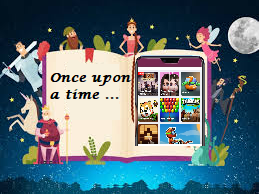
Arquivo para June 7th, 2024
Disenchantment, narration and pain
Chul Han remembers a very well-known habit in many societies, which is telling children bedtime stories, I remember that it is old because they are famous: Aesop’s fables (ancient Greece), the tales of the Brothers Grimm, the stories organized by Charles Perrault and many others, Han will choose a little-known story (at least here in Brazil) by Paul Maar of young Konrad that he didn’t know how to narrate and his sister Susanne asks him to tell her a bedtime story.
many societies, which is telling children bedtime stories, I remember that it is old because they are famous: Aesop’s fables (ancient Greece), the tales of the Brothers Grimm, the stories organized by Charles Perrault and many others, Han will choose a little-known story (at least here in Brazil) by Paul Maar of young Konrad that he didn’t know how to narrate and his sister Susanne asks him to tell her a bedtime story.
The parents, on the other hand, liked to narrate, they were “almost addicted to it” and when the father finishes telling a story, the mother writes R for Roland on the paper and when the mother finishes telling the story, the father writes an O for Olivia, but the parents realize that Konrad can’t tell stories and send him to a certain Miss Muhse, he arrives at a small house and the lady who knows that he has come to learn how to tell stories asks him to go up a ladder and take a small package to his sister, but the The stairs seem endless until they meet a wall that opens like a door.
Inside it is all dark and he sees an owl with a strange voice and conversations and realizes that there is no floor and falls down a long path, finding Miss Muhse at the end who gives him another package and asks him to take it to her brother downstairs as he did not deliver the first one, Konrad is confused because he thought he had fallen to the ground floor, and he falls again into the “dark spaces” of the house and again Miss Muhse arrives who is now smoking a fine cigar and knows that he didn’t deliver the package and gives him another one again, he says “I’m not here to deliver little packages, I’m here to learn how to narrate”, she sees that she’s a lost cause, opens a door in the wall and says: “Happy sorting and all about bread” (she always changes the sayings) and this time he is back at his parents’ house (pages 74 to 77).
His parents and little sister are having breakfast and he says excitedly: “I have to tell you. You won’t believe what I experienced…”, Konrad’s world is now different and now his parents write K (for Konrad) on the paper they wrote down their narrations.
The disenchantment of the world is when everything is reduced to causality, facticity (today’s narratives say facts don’t lie, but under a partial interpretation), Walter Benjamin says that “children are the last inhabitants of the enchanted world” (pg. 79), I would say there is no more lightness, empathy and imagination in the “adult” world.
“Children today hunt for information like digital Easter eggs” (pg. 80), today the “lack of narrative interiority distinguishes photographs from souvenir images… photographs portray data without internalizing it… they don’t want to say nothing… “ and this is why I conclude that data may not be, and almost always is not, information.
It is even more difficult to understand what knowledge is as an experience: “the narrative is opposed to chronological facticity” (pg. 81), recalls Han reading Marcel Proust and also Benjamin that the aura is precisely the “distance of the gaze that awakens in the observed object ” (pg. 82) and will also remind you of Karl Kraus quoted in Benjamin: “the closer you look at a word, the further away it seems to be” (pg. 83).
The denarrativized memory is like a “junk store” here the author remembers Paul Virilio (Information and Apocalypse) being the “deposit full of all kinds of completely disordered, poorly preserved images and worn out symbols” (pg. 84), where one finds makes “a pile of data or information does not have a story. It is not narrative, but cumulative” (pg. 84).
This chapter ends in a very pleasant and sensitive way, after quoting excerpts from the works of Susan Sontag, Adorno and Gershom Scholem, paraphrasing the latter he writes: “The mythical fire in the forest has been forgotten. We no longer know how to say prayers. We are also not capable of secret meditations” (pg. 89) and I would say taking advantage of the topic Pain from the book “Heidegger’s Heart: on the concept of tonality” (see previous posts) we no longer know the meaning of pain, of affection and we have lost any notion of the “whole”.
Han, B.C. (2023) A crise da narração (The crisis of narration). Transl. Daniel Guilhermino. Brazil: Petrópolis, Vozes.

